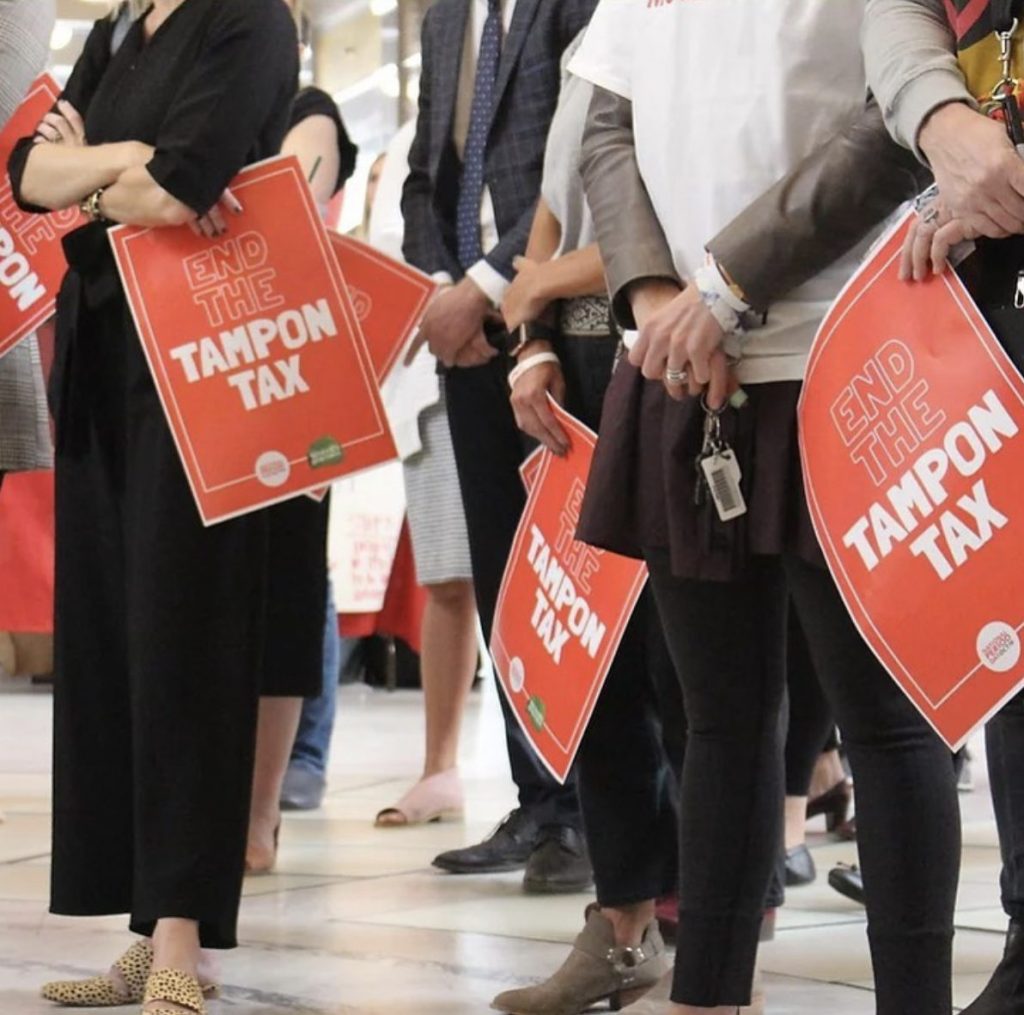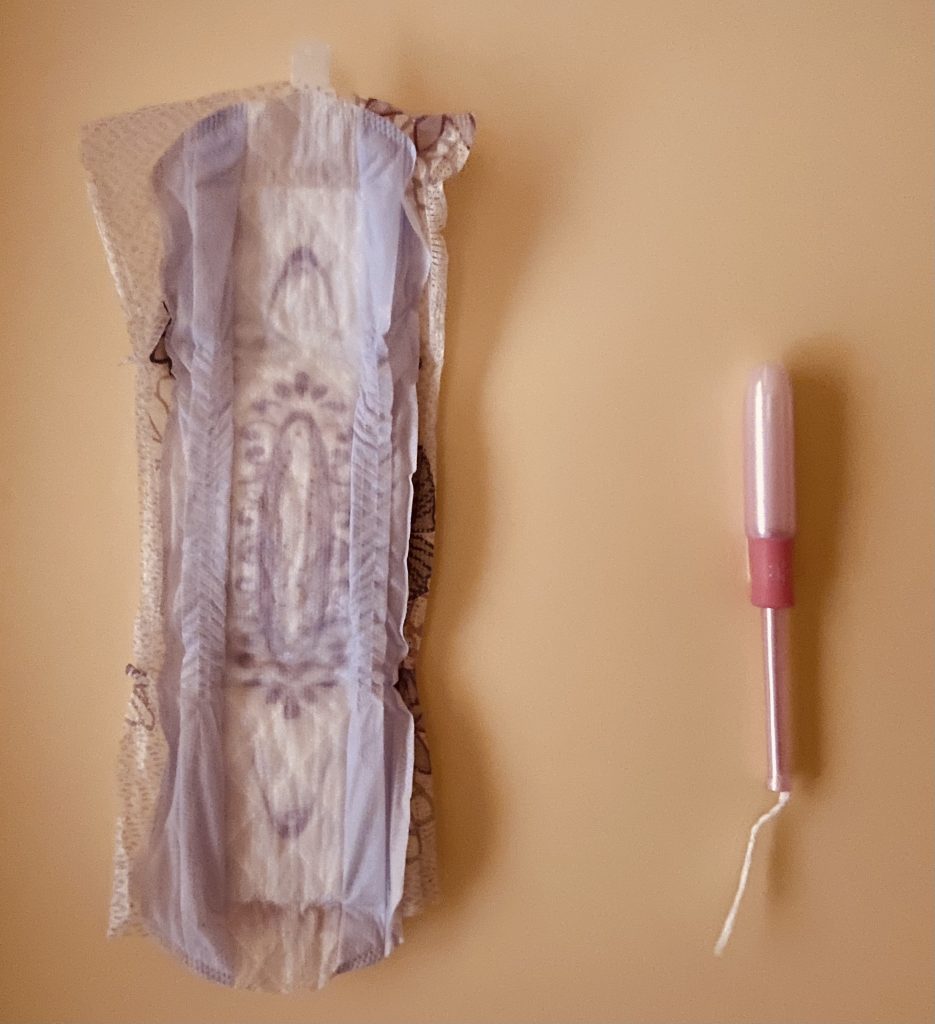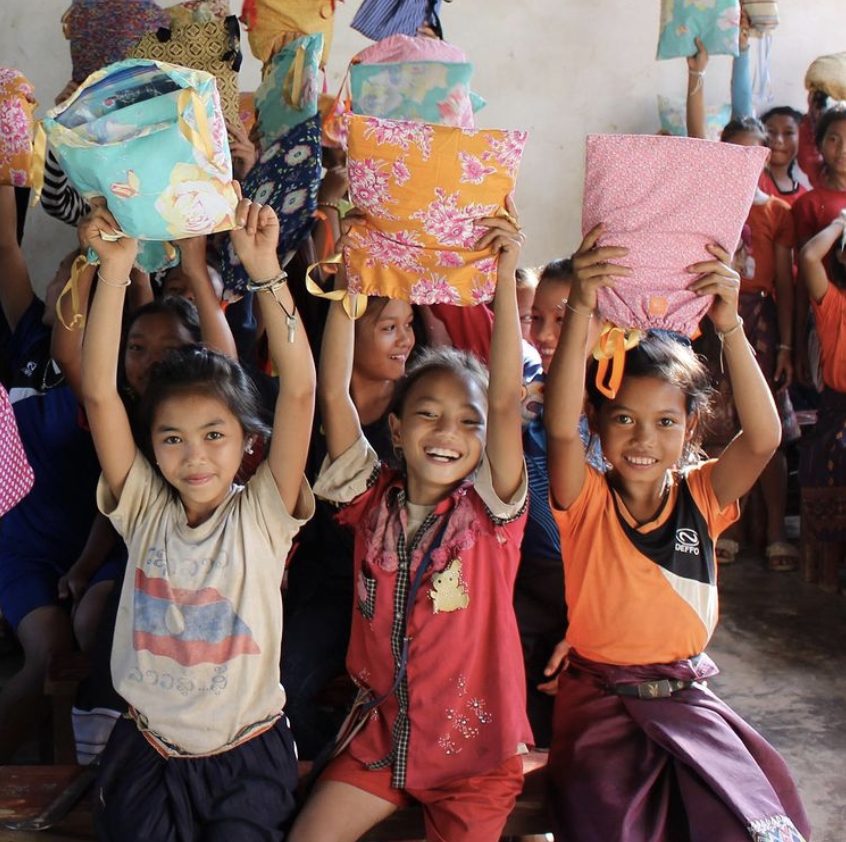How Much Money Does The Average Woman Spend On Feminine Products

Globally, iii.5 billion women accept monthly periods. According to charitable arrangement Days for Girls, over 500 million women and girls, well-nigh 25% of all menstruators, experience "period poverty." Over 500 meg women exercise not take admission to feminine hygiene products.
According to Thinx and PERIOD, one in v teenagers in the United States have struggled to afford period products. According to the Days for Girls website, period poverty is a term used to describe the lack of access to adequate menstrual health management supplies and education for women and girls.
According to the Days for Girls website, many women are unable to afford feminine hygiene products because of how expensive they are. This lack of resources and supplies for menstrual health can accept negative consequences on women.
Expensive prices for feminine hygiene products
According to Pandia Health, if a woman was to employ 1 tampon every half dozen hours and four tampons are used every day, that would equal to 20 tampons for every five-day menstrual bike, totaling to 9,120 tampons in their life. If a box of tampons price $7 and there are 36 tampons in i box, the cost for a lifetime would equal to $i,733.33.

With panty liners, an estimated average would be $433.33 per lifetime.
If a adult female was to utilize three to five pads a day over a five-solar day menses, they would likely spend effectually $4,752 in their lifetime on pads.
If a woman leaked during periods and one ruined panty cost $5, information technology would toll $2,280 for 456 periods.
On top of the high prices on catamenia products, there is also a "pink revenue enhancement" on feminine hygiene products. According to Investopedia, "pinkish revenue enhancement" is a price discrepancy in which services and products marketed to women cost more than than identical products or services marketed to men. Out of the 50 U.S. states, 30 states still take this pink tax.
"In Utah, period products are taxed as a luxury particular, only condoms aren't taxed," said BYU alumna and Days For Girls global advancement manager Diana Nelson. "It'south under a pinkish revenue enhancement because feminine hygiene products aren't seen every bit a medical necessity, but as a luxury."
According to Period Disinterestedness, many people, including women, believe feminine hygiene products should not but exist tax free only costless in full general. The website continues to say menstrual products should be freely attainable in schools, shelters and correctional facilities.
"It's gender inequality and people don't fifty-fifty think about it because nosotros don't even talk near it," Nelson said.
Higher students affected by flow poverty
Women attending university campuses across the U.South. accept been affected by period poverty and have been unable to buy feminine hygiene products because of how expensive these products are.
According to individual surveys from Penn Land Days for Girls Club, 49% of respondents started their period on campus and were unable to find flow products. Approximately xiii% of respondents also missed school or work because of a lack of access to menstruation products.
Nelson shared a memory she had with her roommate when she attended BYU. Her roommate would oft take toilet paper and make them into pads. At the time, Nelson didn't realize her roommate was unable to afford pads, and therefore had to apply makeshift pads that were uncomfortable and hard to use.
"I look back and I put all of it together. I realized I had all these pads I could have shared with her, but I didn't know at the time," Nelson said.
BYU Women's Services & Resources Managing director Dixie Sevison said the function has a drawer full of unlike feminine hygiene products available for students, and they don't limit on how much each student can take. Any student who needs feminine hygiene products can go to the Women's Services & Resources part and accept as much equally they need.
Sevison said other university campuses have started offering feminine hygiene products to students for gratis on campus. Women'due south Services & Resources has also started working on a proposal to BYU which would offer gratuitous feminine hygiene products to women on BYU campus.
Presenteeism and Absenteeism
Women on periods may also struggle with presenteeism, a loss in productivity when employees are unable to fully office because of their menses cramps or pain, co-ordinate to Reuters Wellness.

Nelson said women who struggle with periods and period poverty can be physically nowadays at school or work, but absent in their minds because of a fear they might be leaking and pain from period cramps.
Nelson said at that place accept been instances of women existence called upwards to share a presentation or to show their work, and been unable to do and then in fright of leaking.
According to Days for Girls, absenteeism is some other implication of not having access to feminine hygiene products or having farthermost menstrual pain. Absenteeism is failure to report or remain at piece of work or school as scheduled.
In March 2018, a flow tracker app called Clue said 18% of women in the U.S. missed school, work or an consequence because of menstruations.
Nelson said pain and fear can bear upon women detrimentally — including their school and work performance. This could cause women to lose jobs or practise poorly on performance reviews. This would affect women's sources of income and put them at a further risk of losing their jobs and/or create a hazard for poverty.
Raising awareness about period poverty
According to The Pad Project talking about periods may be uncomfortable at first, but every bit women and people speak out more nearly menstrual wellness, it will permit society to face the problems surrounding it.
Nelson said creating a safe space where all people, regardless of gender or sexual orientation can experience comfortable talking about periods would be an of import step in combating period poverty. "We tin can't change something until we're aware of information technology."
Nelson said Americans are more comfortable talking near sexually transmitted diseases than they are near menstruation. "People would rather talk near gonorrhea than periods. Because we don't talk almost it, we don't know information technology'southward a trouble."
Jessica Blotter, Days for Girls volunteer and BYU kinesiology and exercise science student, said it's not a choice for women to go through menstruation. Information technology's natural and normal and shouldn't be something they are ashamed about.
Blotter said even when she's open about periods and cramps, some of her friends, especially male person friends, have gotten embarrassed talking about it.
She said her roommate would stay home when she was on her period and refrain from spending time with other people considering of a lack of agreement of periods and the culture where she was from. People from her civilisation told her she should stay home and refrain from interacting with other people, especially other men.
"Periods should be normalized, peculiarly at BYU — you shouldn't take to experience like you're different because yous're going through your period," Blotter said.
She hopes to heighten awareness nigh periods and period poverty, and normalize talking almost it. She also hopes to start a Days for Girls club or a gild that raises awareness about menstrual health on BYU campus.
Nelson said it must have been embarrassing for her friend to be in an environment where she should have had the supplies but couldn't afford them because of expensive product prices. Her roommate couldn't ask others for the help she needed, because no one talked about it.
Source: https://universe.byu.edu/2021/06/25/period-poverty-affects-millions-of-women-girls-globally/
Posted by: hodgsonthille.blogspot.com


0 Response to "How Much Money Does The Average Woman Spend On Feminine Products"
Post a Comment